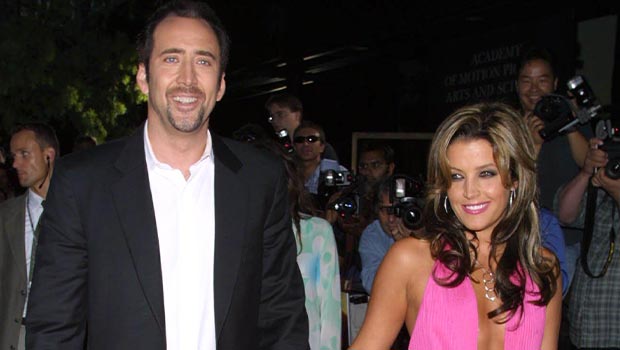He admitted to lying about his education and professional career, and now his background and finances are under investigation.
If George Santos, the newly sworn in congressman from New York, worked in business, he’d be fired, outraged voters from his district say.
Those voters have a point.
“If you lie on the application and to me in an interview, what will you do on the job? It’s a big red flag for me,” said Barbara DeMatteo, director of HR Consulting at Portnoy, Messinger, Pearl & Associates in Jericho.
Of Santos, “no one did their due diligence,” said Barbara Frankel, CEO of Coaching Initiatives in East Quogue, who has an HR background in banking and finance.
Experts in human resources, team-building and leadership told Long Island Business News that willfully lying on an application is a terminable offense.
It’s an aspect that should be “covered in the employee handbook’s general standards of conduct,” said Nicole Craveiro, chief HR officer of CraveHRO in Ronkonkoma. “Some handbooks say lying” on an application is a firing offense.
How prevalent is faking credentials? As many as 42.5 million Americans lied their way to a job, according to a recent survey from StandOutCV, a provider of CV resources and services, which in October surveyed 1,785 adults in the United States.
In the business world, willful lying during the job application process can trigger big consequences, from getting “fired, removed from the hiring process, or blacklisted completely,” according to StandOutCV.
And for good reasons, experts say.
Trust is a big factor, said Frankel, who works with leaders, teams and organizations.
Employers must “verify someone is who they say they are,” Frankel said. “It’s critical for a leader to build a great team. You can’t build a great team without trust.” Those team members need to trust the people they work with and their leader, she said.
The interview process itself can be an eye-opener.

Barbara DeMatteo
“I take a look at what are their gaps in employment and do they make sense,” DeMatteo said. “Red flags are so important.”
Yet there are plenty of instances where gaps make perfect sense, including caring for relatives, Frankel said.
DeMatteo looks to see if the resume and application match. It also leaves room to spot new insights, including if the person even bothered to fill out the work experience portion of the application, rather than simply say “See resume.” If the person won’t fill out that portion of the application, if hired, “what will they do on the job?” DeMatteo asked.
DeMatteo recommends that at least two people conduct interviews, and coordinate what each person would talk about, and “it shouldn’t be a rinse and repeat,” she said. For example, as an HR expert, DeMatteo spends about an hour speaking with the candidate about the person’s background, work history and what they liked about past job roles.
It’s in these kinds of conversations that DeMatteo can spot discrepancies.
“I’ve seen everything,” she said. For instance, one candidate spoke of her experience in strategic decision-making and negotiations. But when DeMatteo asked, “what did you negotiate,” the candidate “fumbled,” saying, ‘Oh, no, the CEO made the decisions. I was in the room.’”
The secong interviewer would dig into the specifics of the roles and responsibilities of the job.
“This is why the application is so critical,” especially when the applicant has signed it, affirming that the information provided is “true to the best of their knowledge,” DeMatteo said.
The application can serve as a tool if it turned out the person willfully lied on it. If the person has not yet been hired, it’s usually fitting to thank them for coming in and note that the organization has “decided to consider someone else,” DeMatteo said. But the employer should document why in case the candidate files a discrimination claim.

Nicole Craveiro
“All candidates have a right to their background check,” Craveiro said.
These candidates might question if the background check highlighted something that was unrelated to the job role that prevented them from getting hired.
If the employer wants to terminate a recent hire, “the person has to have a darn good reason,” which is why she advises to “document it as if I had to explain to a judge and jury why I let the person go,” DeMatteo said.
Background checks, once an offer is made, are key to a good hiring experience, experts said.
And while larger organizations tend to have the deep pockets to conduct deep dives into a candidate, these steps are worthwhile investments, experts said.
“It’s more cost-effective” when one considers the expense of “hiring, onboarding and training,” Frankel said.
However, when it comes to criminal background checks, the U.S. Equal Employment Opportunity Commission “discourages blanket exclusions of individuals convicted of criminal offenses,” according to the Society for Human Resource Management. To determine the viability of a candidate who has been convicted of criminal offenses, consider “the nature and gravity of the offense; the time passed since the offense; [and] the nature of the job sought,” according to SHRM.
All of this can be a lot to navigate.
“I never recommend to clients that they do it themselves – a third party can guide you,” Craveiro said. That’s because there could be potential risks and liabilities for anyone who is not familiar with all of the nuances of federal, state and local laws.
Had more due diligence about Santos been conducted, and broadcasted, many voters would not have cast their vote for him, according to published reports. And now he is persona non-grata to the people of his local party. On Wednesday, Nassau GOP chairman Joe Cairo, stood with dozens of elected officials and said, “on behalf of the Nassau County Republican Committee, I’m calling for [Santos’] immediate resignation.”
In the House chamber, Santos was often photographed alone, seemingly ostracized. It’s an indicator of what can happen when toxicity is added to the mix. And the outcome is still to be determined.
Though it’s possible in the business world that the person may integrate well with the team, if it’s “not a good person on top of that, it can create a bad culture,” Craveiro said. “If you don’t discipline someone, think about the message it sends to the rest of the team.”
Distrusting behavior can “create an environment where people don’t thrive,” Frankel said. “To do their best work, people need to be fully engaged and be the happiest and most productive. It helps with retention. People feel empowered and thrive, but it only works where there’s trust.”
And while in some instances, people feel they must oversell themselves, saying they have certain skills when they don’t, that’s not necessary, in order to get hired, Frankel said.
 “If you don’t have the skills, you can learn them – there are so many online courses you can take,” Frankel said.
“If you don’t have the skills, you can learn them – there are so many online courses you can take,” Frankel said.
“Some are free,” she added. “Start the training and put it on your resume with an expected completion date. Or volunteer somewhere to develop a portfolio.”
But, she said, “it shocks me that some people do not know that you can’t lie and that everything has to be truthful.”
[email protected]


























































![Mason Ramsey – Twang [Official Music Video] Mason Ramsey – Twang [Official Music Video]](https://i.ytimg.com/vi/xwe8F_AhLY0/maxresdefault.jpg)




















